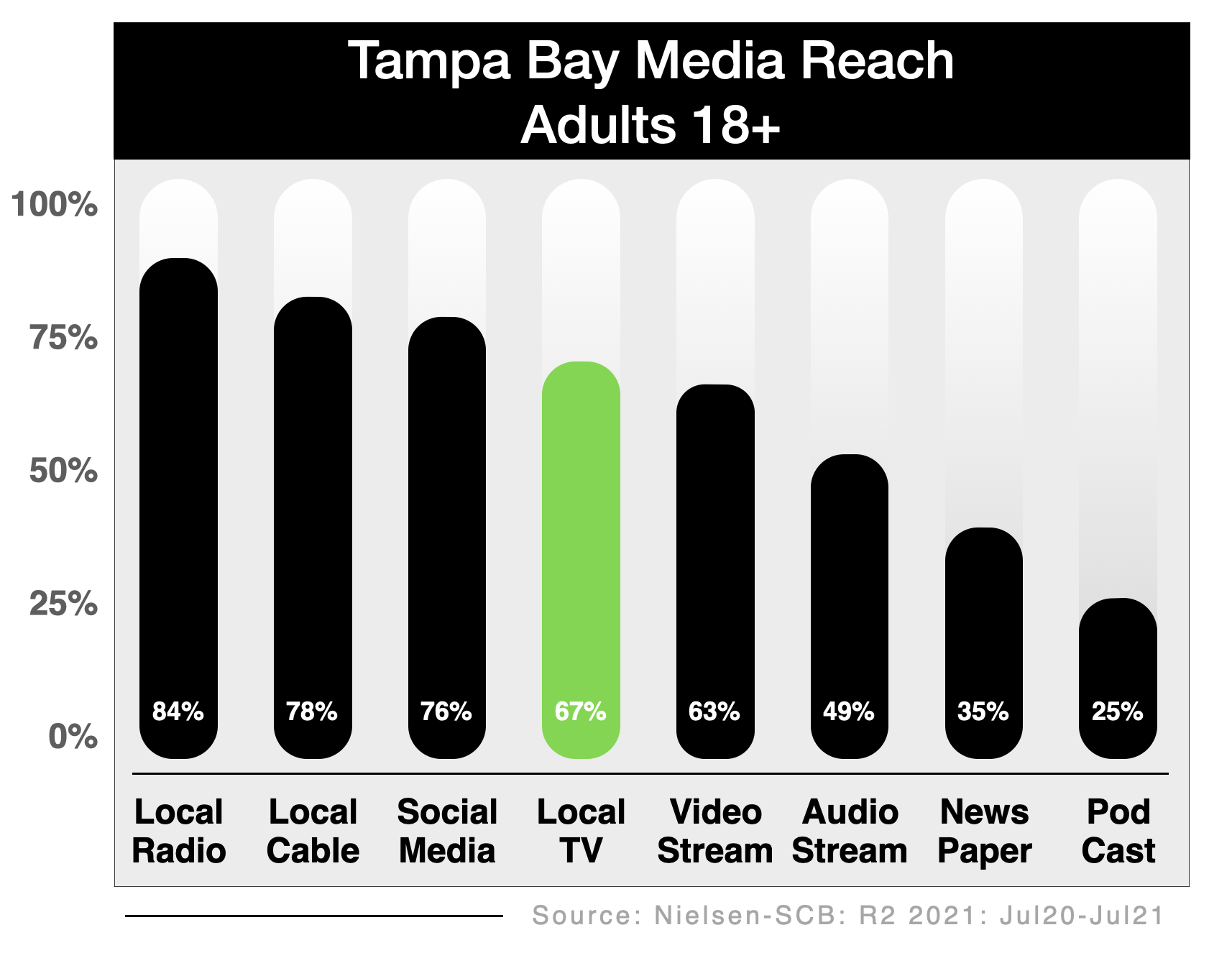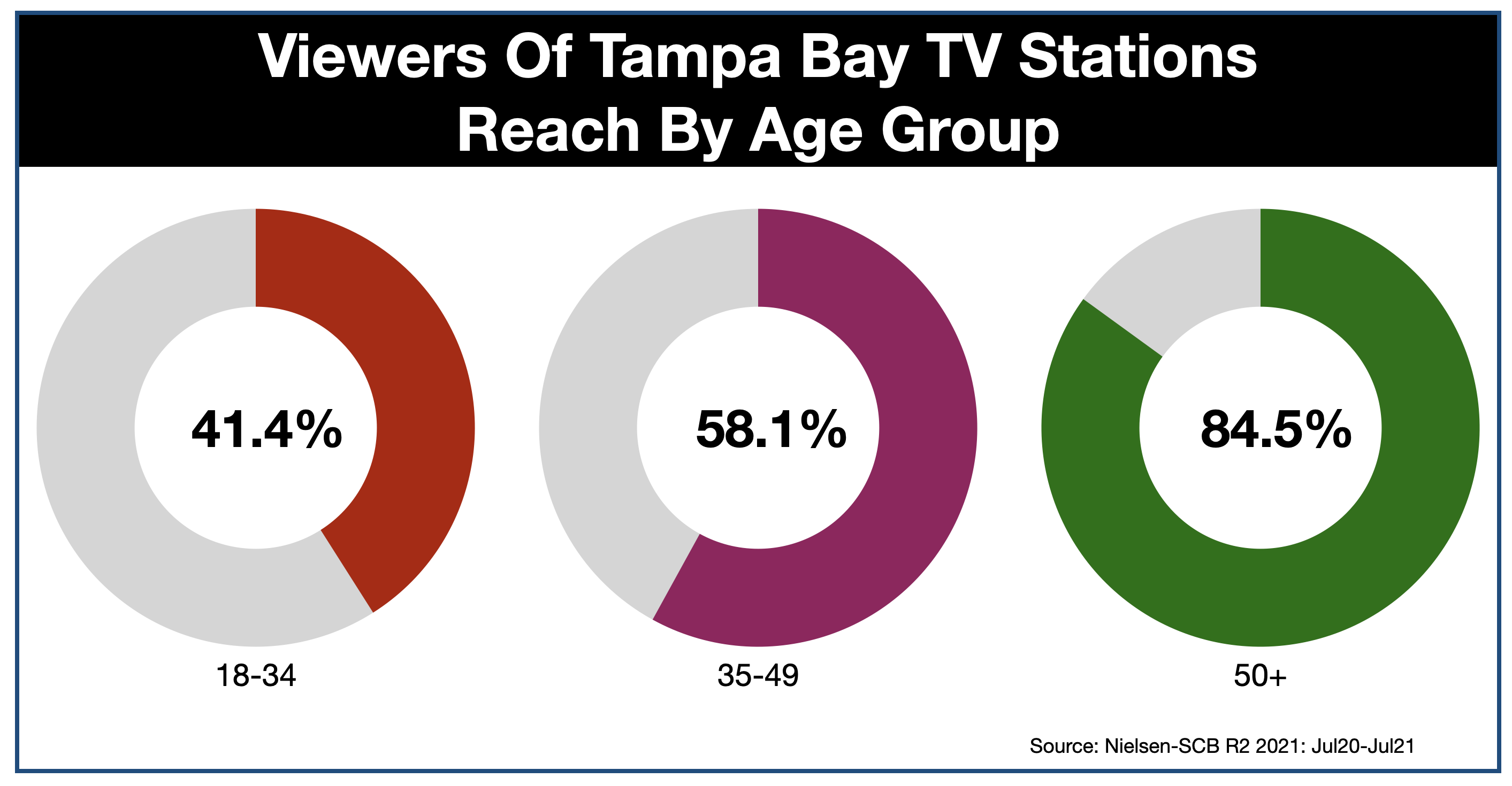It wasn't too long ago when advertising on Tampa Bay television stations was considered the gold standard for marketing by local business owners. But over the past few years, the number of viewers reached by WFLA, WTSP, WTVT, WFTS, and WEDU has plummeted. In all only 67% of adult consumers now tune-in to at least one of these channels during the week, according to Nielsen.
The consumption of video content isn't diminishing among Tampa Bay consumers. What has changed, though, is how they are watching it.
In November, according to Nielsen, the share of time watching broadcast television has fallen behind other video options including cable programing and internet-delivered choices such as Netflix, Hulu, Disney+, and hundreds of other streaming networks.
Overwhelmingly, the mass exodus of viewers from Tampa Bay TV stations is happening among 18-34-year-old consumers who are fueling the growth of streaming video. This age group comprises nearly 50% of the millennial generation. Overall, this generation now accounts for nearly one-third of all retail spending.
In all, says Nielsen, 1.7 million consumers watch streaming video content every week. Combined, these internet channels now reach more adults every week than local newspapers, podcasts, and digital audio services like Pandora, Spotify, Sirius/XM. Amazon Music, and iHeart Radio.

Streaming video platforms fit into one of two categories, SVOD or AVOD.
SVOD is the abbreviation for Subscription Video On Demand. That is the collective name for streaming networks like Netflix, Hulu, Disney+, and Amazon Prime. For a monthly fee (subscription), these services provide commercial-free access to TV shows, original content, and movies.
AVOD means Advertiser-supported Video On Demand. AVOD provides viewers with movies, TV shows, and original content for free. Unlike SVOD,
there is no subscription fee. The trade-off, however, is AVOD includes commercial breaks, similar to traditional TV viewing.
A few services even provide consumers with the option to choose to pay to watch without commercials or to receive content for free in exchange for watching advertisements.
AVOD is the fastest-growing segment of video streaming. According to eMarketer, more than 50% of all consumers who stream video content are doing so on ad-supported platforms.
Unlike traditional TV, local advertisers don't have to pick specific AVOD channels or programming to advertise in. Instead, Tampa Bay area business owners can identify the particular type of consumers they would like to reach, Then the advertisers' commercials will only be shown to those potential customers on any streaming channel they might be viewing.
For instance, commercials for a home improvement company can be limited be shown only to AVOD viewers who live within 6 miles of the business and in the market for remodeling. Again, these commercials will only be shown to viewers who fulfill that description on whichever ad-supported streaming network they are watching.
Geographic targeting of AVOD commercials can be limited to a radius surrounding a specific address, zip codes, towns, cities, counties, states, or regions. Within those areas, target criteria can include age, gender, income, home-ownership, purchase behavior, and hundreds of other descriptors.
Tampa Bay small business owners and marketers can purchase AVOD and other OTT/CTV advertising schedules through many local media companies, including Beasley Media Group. The cost to advertise is based on the number of advertising impressions that are verifiably shown to the targeted consumers.







